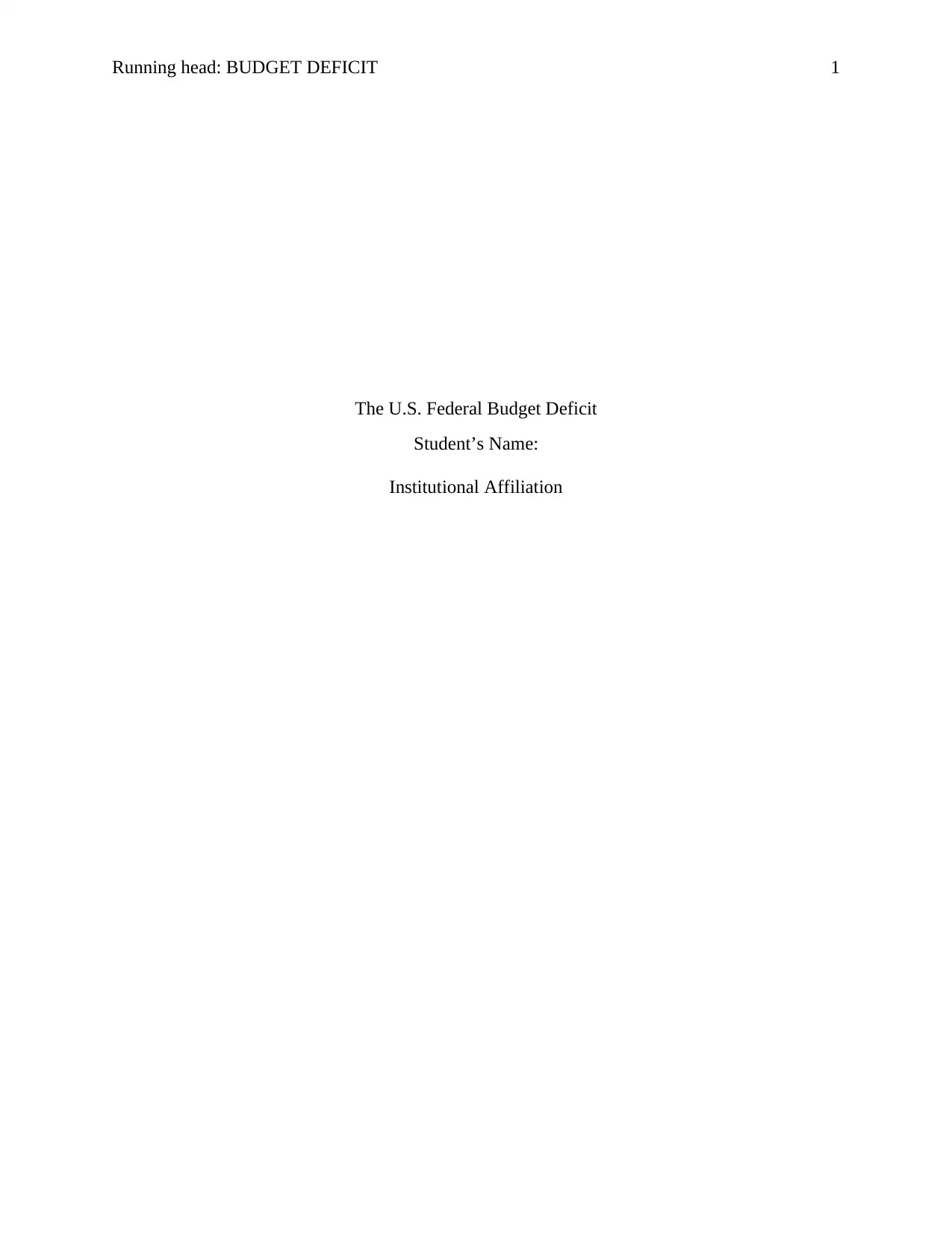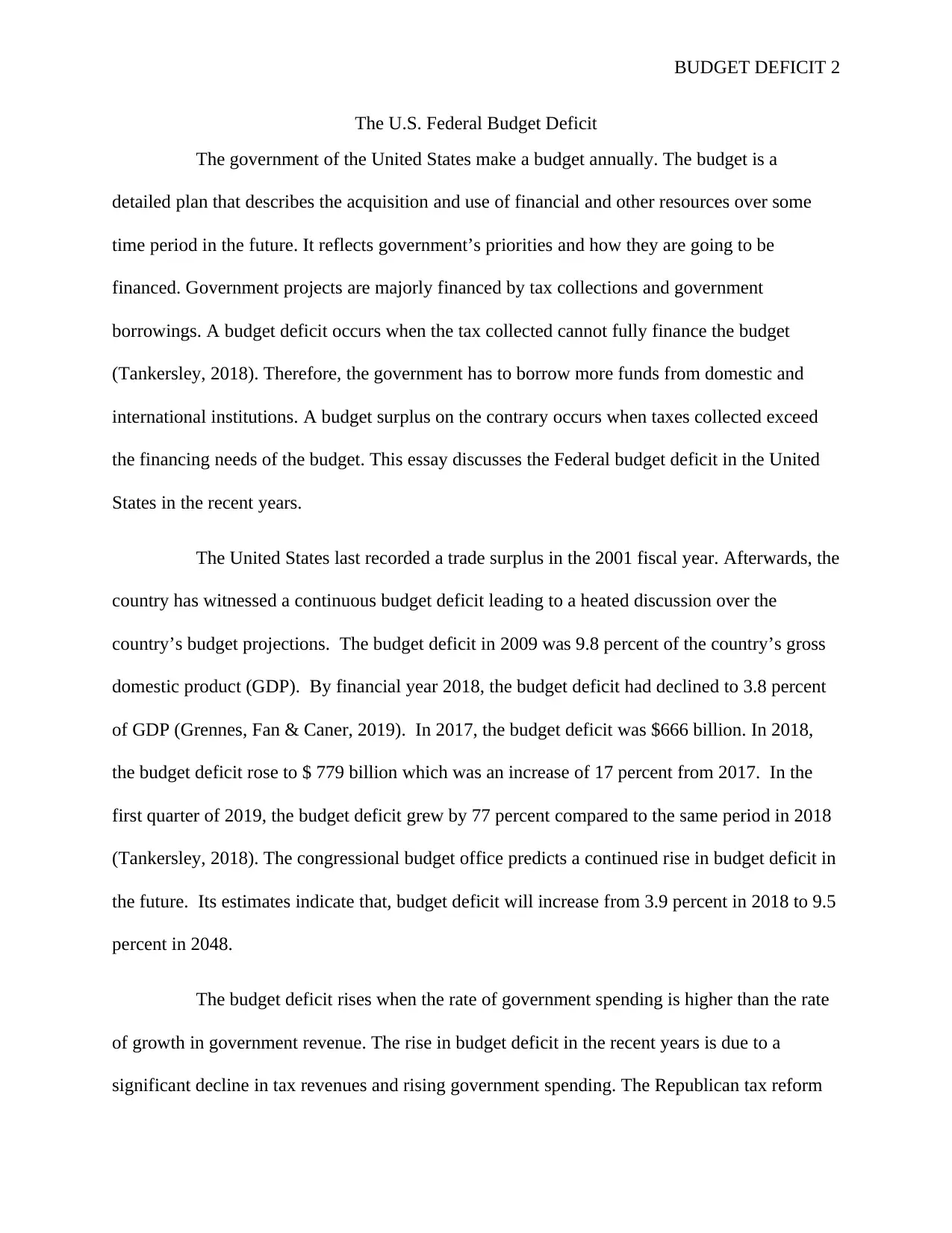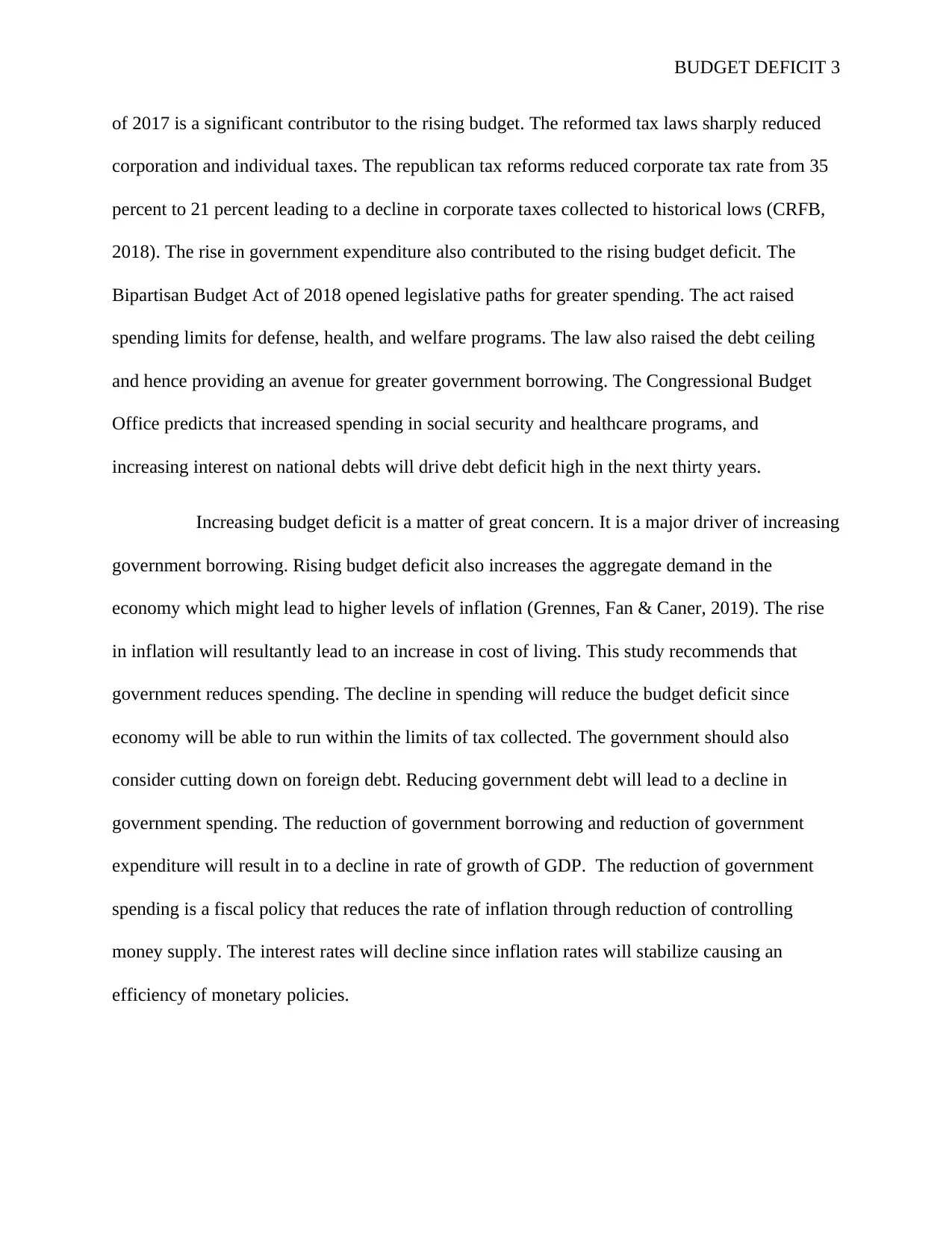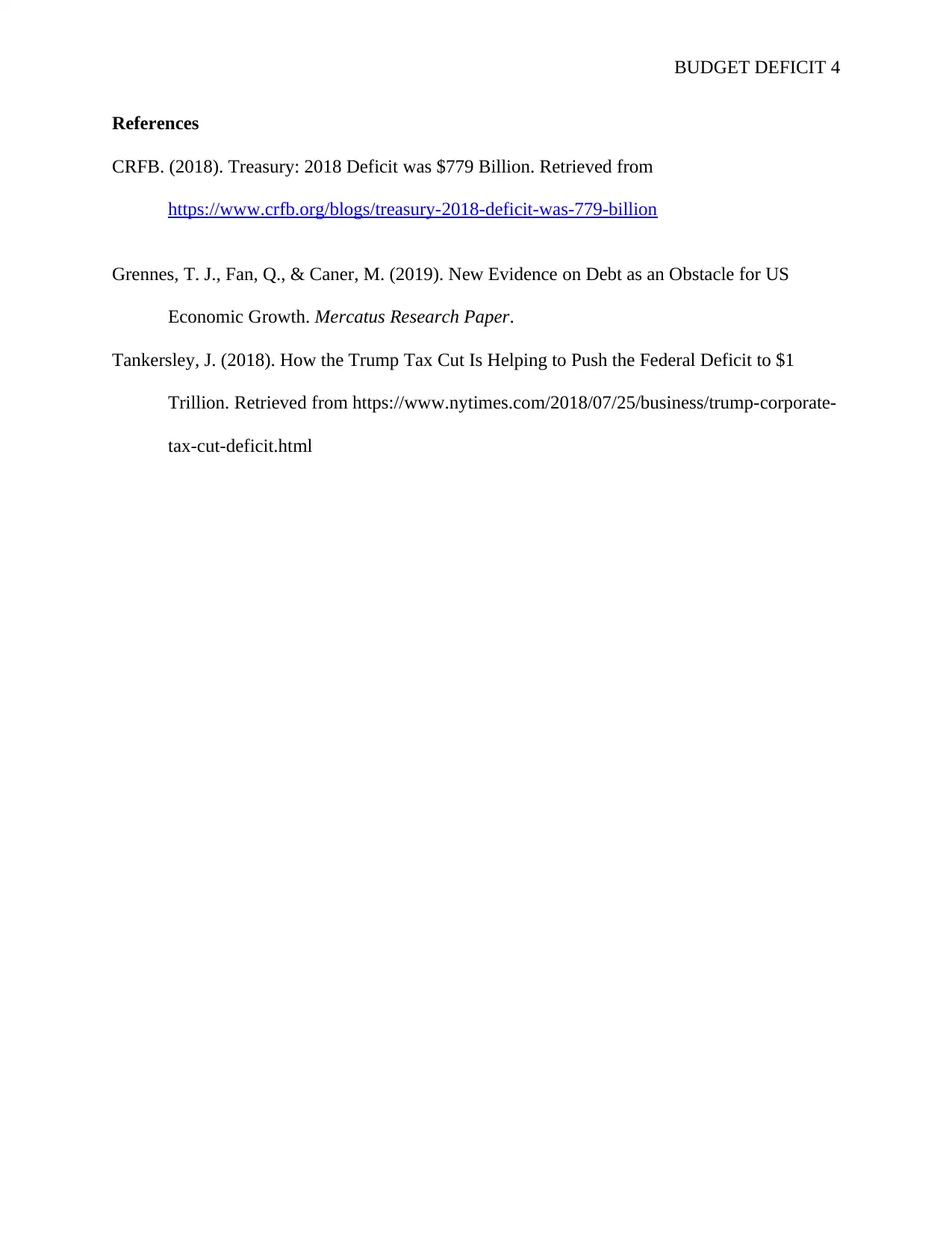Detailed Report on the U.S. Federal Budget Deficit and its Impacts
VerifiedAdded on 2022/12/26
|4
|794
|75
Report
AI Summary
This report examines the U.S. Federal Budget Deficit, analyzing its historical trends, current status, and future projections. The report begins by defining a budget deficit and its occurrence in the United States since 2001. It highlights the significant increase in the deficit in recent years, driven by declining tax revenues due to tax reforms and rising government spending, including increased spending on defense, health, and welfare programs. The analysis covers the impact of the Republican tax reform of 2017 and the Bipartisan Budget Act of 2018. The report also discusses the potential economic consequences of a rising budget deficit, such as increased government borrowing, higher inflation, and rising cost of living. The study recommends government spending cuts and reductions in foreign debt to mitigate the deficit and stabilize the economy. The conclusion emphasizes the need for fiscal policies that control money supply and stabilize interest rates.
1 out of 4











![[object Object]](/_next/static/media/star-bottom.7253800d.svg)